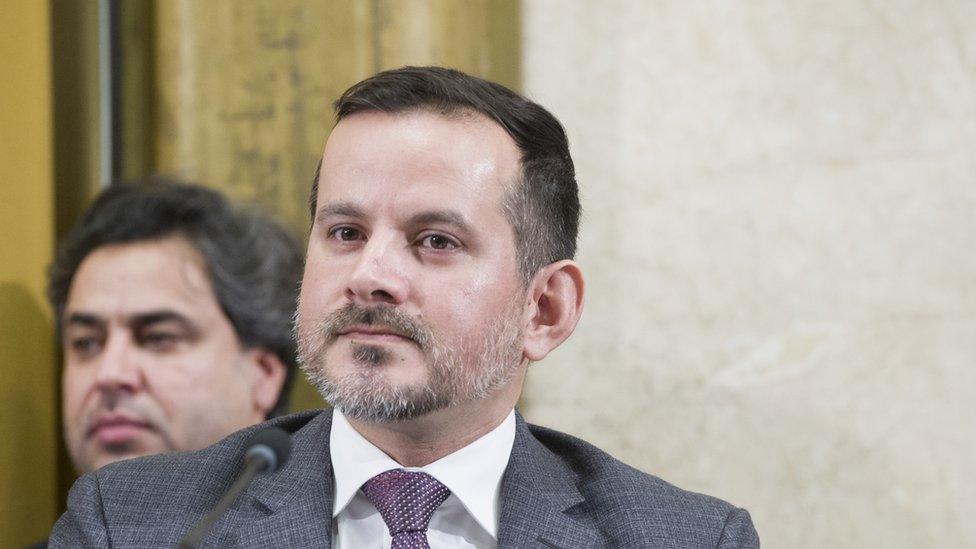US left too quickly, says Afghanistan bank governor
- Published

Acting bank governor, Ajmal Ahmady, recently tweeted a description of his last few days in Kabul
The central bank governor who fled Afghanistan this weekend has told the BBC he wished the country had been left with more time to plan for the withdrawal of US troops.
Ajmal Ahmady said it was the Americans' right to leave, even though most Afghans wished they had stayed.
But he said there should have been a "longer timeline to implement it".
He also rejected President Biden's assertion that the Afghan military had failed to fight for its country.
"I wouldn't qualify this as a military victory for the Taliban," he told the BBC's Victoria Craig and Will Bain.
"I would qualify this as perhaps an intelligence victory, a victory where they were able to convince or make deals with people to surrender."
Speaking for the first time since tweets of his dramatic exit from the country went viral, Mr Ahmady spoke of the chaos at Kabul airport as he tried to leave on Sunday.
The former central bank governor, who had also held a brief as Afghanistan's minister for industry and commerce, accepted that wide scale corruption in the country had been a contributing factor to undermining confidence in the authorities.
"There was significant amounts of corruption in the Afghan government, you cannot deny that, that is true. But I think there were actions being taken to reduce that and it's very difficult to do in just the span of a few years."
Asked if that failure to tackle corruption could have contributed to recent events Mr Ahmady said: "Was it the only or major contributing factor? I think it was major factor.
"But I think also the [peace] deal that Ambassador Khalizad [the US special envoy to Afghanistan] negotiated [with the Taliban] which excluded the Afghan government contributed to the de-legitimisation.
"And I think it was in some part the Afghan government's failure in handling corruption… I think you can count issues and problems on both sides."
Despite this, Mr Ahmady said he was still unable to get his head around the speed of the country's fall to the Taliban.
Among his immediate concerns are the issues facing the country's beleaguered economy, with fears of runaway inflation and a collapse in the currency.
"I think the economic situation will deteriorate. I would expect donor flows [of aid] to significantly decline over the next couple of months, and that's going to cause... the currency to depreciate.
"That's going to in turn lead to higher inflation, pressure on the banking system, and in turn higher poverty rates," Mr Ahmady said.
Related topics
- Published3 September 2021

- Published16 August 2021
